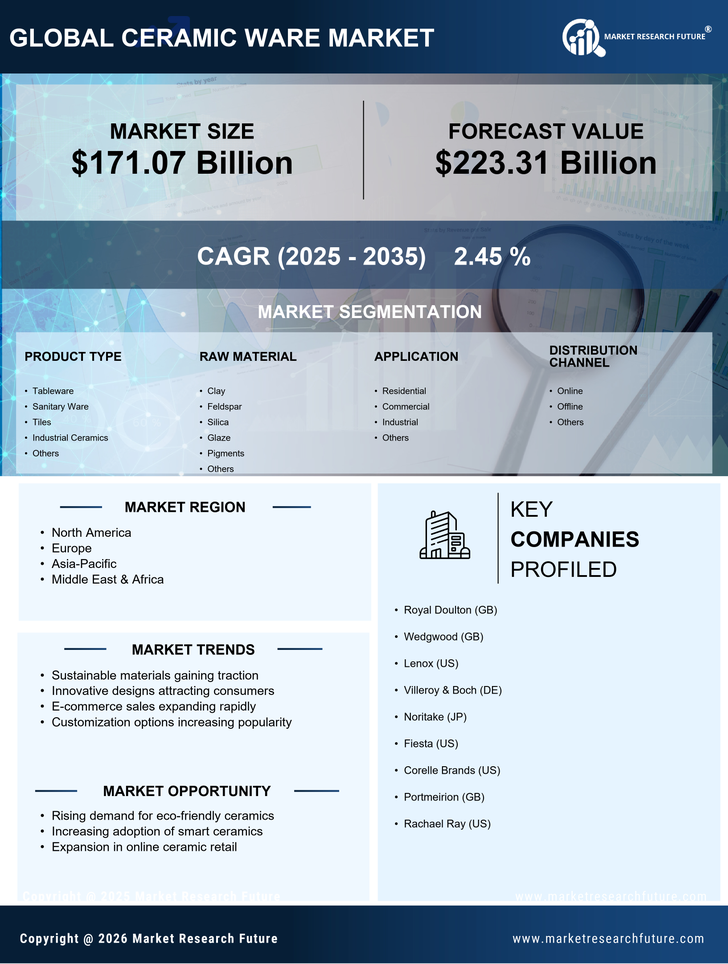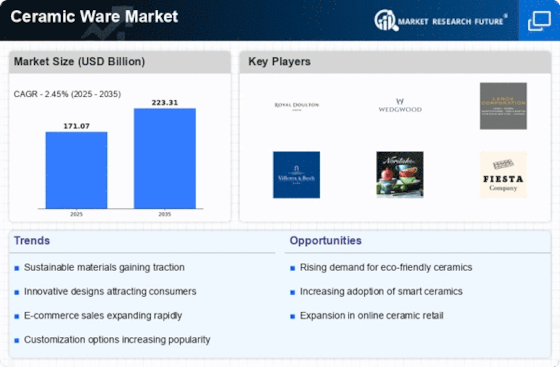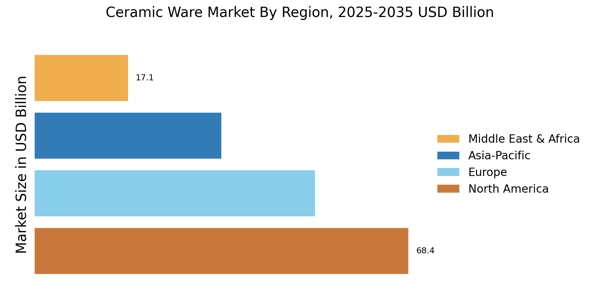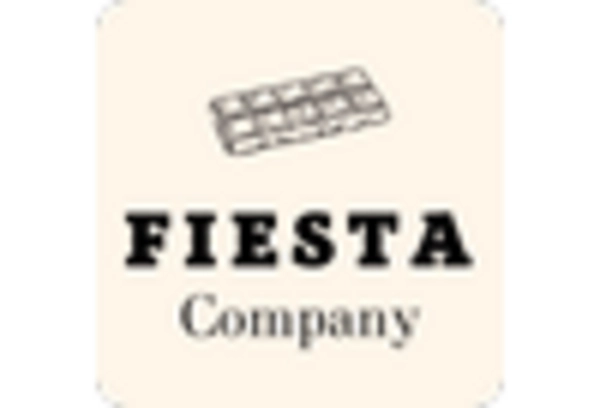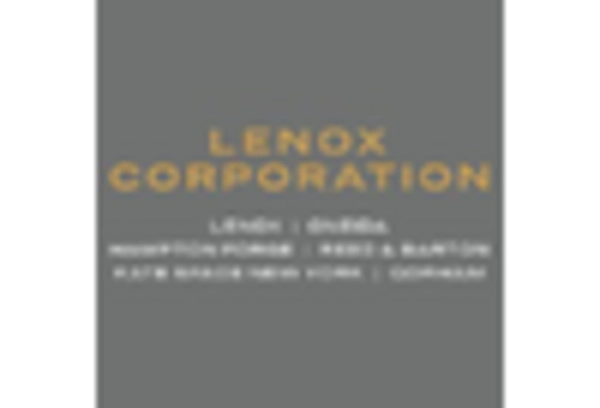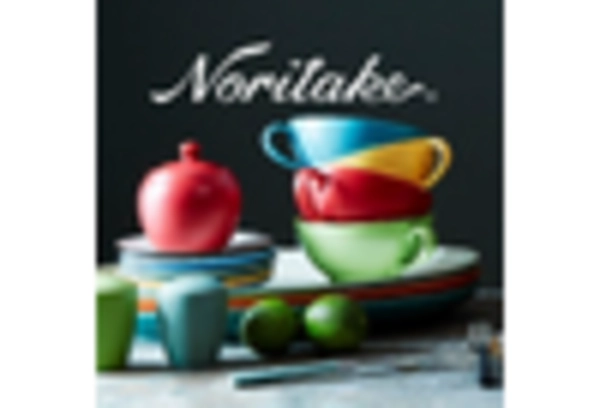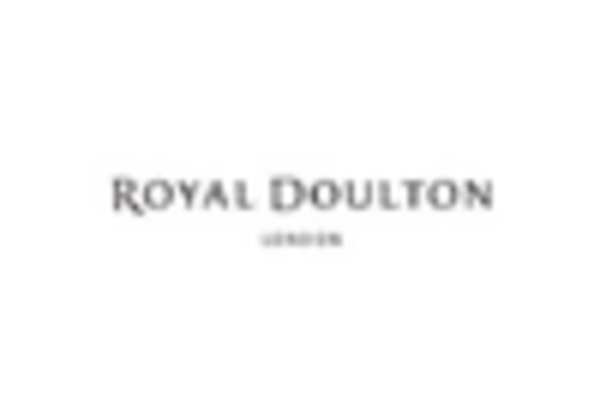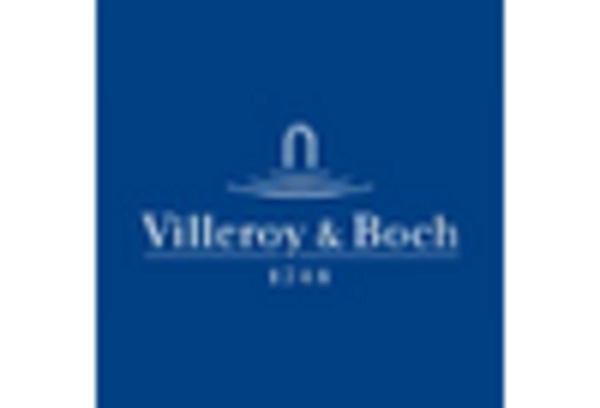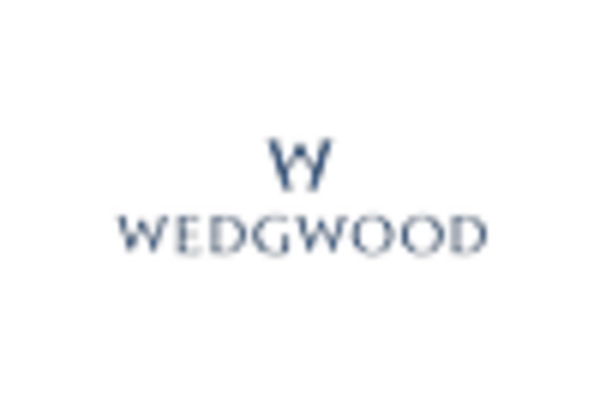Cultural and Aesthetic Trends
Cultural and aesthetic trends are playing a pivotal role in shaping the Ceramic Ware Market. As consumers increasingly seek unique and artisanal products, there is a growing appreciation for handcrafted ceramic items. This trend is particularly evident in home decor and dining, where distinctive designs and craftsmanship are highly valued. Market data suggests that the demand for artisanal ceramic ware has surged, with a projected growth rate of 7% over the next few years. This inclination towards aesthetic appeal not only influences consumer choices but also encourages manufacturers to diversify their offerings, thereby enriching the Ceramic Ware Market with innovative designs and styles.
Growth in the Food Service Sector
The expansion of the food service sector is significantly impacting the Ceramic Ware Market. As restaurants, cafes, and catering services continue to proliferate, the demand for high-quality ceramic tableware is on the rise. This sector is expected to grow at a rate of around 5% annually, driven by the increasing number of dining establishments and the trend towards upscale dining experiences. Ceramic ware is favored in this industry for its aesthetic appeal and durability, making it a preferred choice for food presentation. Consequently, the growth of the food service sector is likely to bolster the Ceramic Ware Market, as businesses seek to enhance their dining environments with elegant and functional tableware.
Increasing Popularity of Home Cooking
The increasing popularity of home cooking is significantly influencing the Ceramic Ware Market. As more individuals engage in culinary activities at home, there is a rising demand for high-quality ceramic cookware and dinnerware. This trend is supported by a growing interest in food presentation and the desire for aesthetically pleasing dining experiences at home. Market analysis indicates that the demand for ceramic cooking and serving ware is expected to grow by approximately 5% annually, as consumers invest in durable and stylish kitchenware. This shift towards home cooking not only enhances the appeal of ceramic products but also positions the Ceramic Ware Market for sustained growth in the coming years.
Rising Demand for Eco-Friendly Products
The Ceramic Ware Market is experiencing a notable increase in demand for eco-friendly products. Consumers are becoming increasingly aware of environmental issues, leading to a preference for sustainable materials. This trend is reflected in the growing popularity of ceramic ware, which is often perceived as a more environmentally friendly alternative to plastic and other synthetic materials. According to recent data, the market for eco-friendly ceramic products is projected to grow at a compound annual growth rate of approximately 6% over the next five years. This shift towards sustainability is not only influencing consumer purchasing decisions but also prompting manufacturers to innovate and develop new, environmentally conscious product lines within the Ceramic Ware Market.
Technological Advancements in Production
Technological advancements in production processes are transforming the Ceramic Ware Market. Innovations such as 3D printing and automated glazing techniques are enhancing efficiency and enabling the creation of intricate designs that were previously unattainable. These advancements not only reduce production costs but also allow for greater customization options, catering to the evolving preferences of consumers. As a result, manufacturers are better positioned to meet the diverse demands of the market. The integration of technology is expected to drive growth in the Ceramic Ware Market, with projections indicating a potential increase in market size by 8% over the next five years as companies adopt these new technologies.
